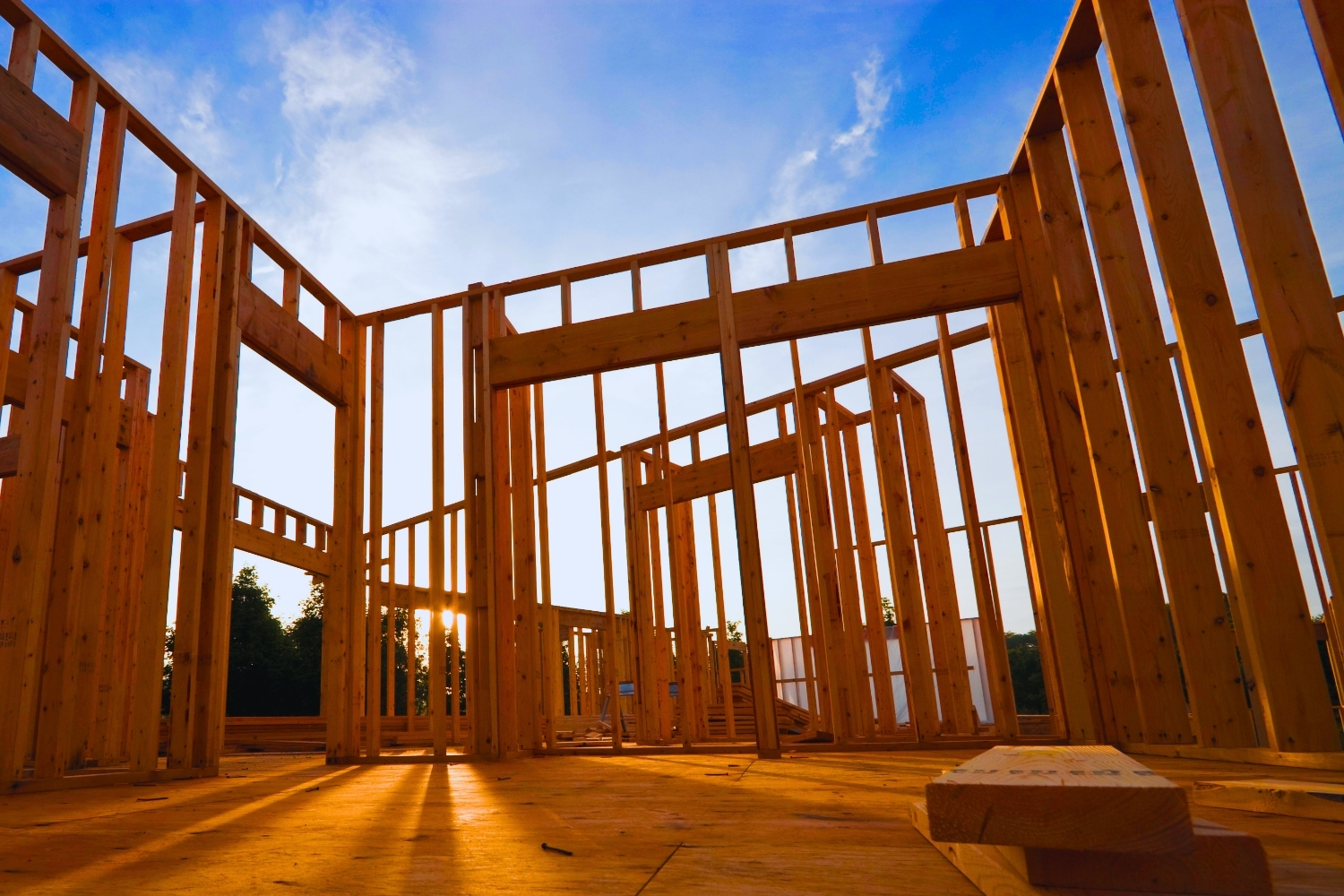
Making Moves: Spec Construction Loans

Where there’s a real estate need, there’s an opportunity for investors—and today’s economic landscape is no different. Though demand for single-family homes has fallen over the past few years, the country’s need for housing is still outpacing supply. The result is a deficit of nearly 1.5 million new homes. This growing gap has created a prime opportunity for real estate investors, particularly in speculative home construction.
If you’re new to spec home lending, let’s break down the essentials of this investment opportunity and how you can finance it through spec construction loans for builders.
What is a spec home?
Spec home construction—short for speculative home construction—refers to real estate investments where developers build homes without an upfront buyer. Rather than remodeling an existing property, investors purchase land and develop it into a brand-new single-family home, hoping to sell it for a profit.
“Think of spec construction as a calculated risk. You’re building without a buyer in place, but in a high-demand market, the potential returns can be very rewarding,” explains Rene Flores, one of Amplify’s seasoned commercial loan officers.
Building a spec home is similar to flipping investment properties, except you’re starting from scratch rather than remodeling. While the construction project may take over a year, spec loans are designed to be short-term financing until construction is complete and the home is sold.
Commercial Lending Solutions
Ready to take that next step? Talk to our Commercial team today.
Costs of Building a Spec Home
Building a spec home involves several costs, each varying based on the size, location, and design of the property. Here’s a breakdown of typical projected costs:
- Land purchase: The plot where your new development will sit must first be purchased.
- Horizontal development: Horizontal development includes the cost of utilities, roads, sidewalks, and anticipated infrastructure enhancements.
- Architectural plans and permits: Securing plans and necessary permits for both the house and horizontal development can add significant expenses.
- Construction management fees: These fees apply when a third-party construction manager is hired instead of the borrower managing the project themselves.
- Labor and materials: This covers the actual itemized cost of building the home.
- Marketing: This includes expenses related to the realtors’ and developers’ or builders’ marketing plan.
Understanding these expenses is key for any real estate investor looking to finance their project with spec construction loans.
Financing Spec Construction: Loan Options for Builders
If you’re considering spec construction, you’ll likely need financing to get your project off the ground. Depending on the scope of your project, there are different financing routes to consider.
Here are a few options for spec home construction loans:
Investing in Individual Spec Homes
No two spec home projects are the same, and because of that, there isn’t always one-size-fits-all loan for your build. For those looking to take things one home at a time, find a lender like Amplify that offers flexible and adaptable construction loans crafted to meet your goals.
Investing in Larger Spec Developments
For those ready to develop multiple homes at once, a guidance line of credit is often the best choice. This loan structure is ideal for developers purchasing or developing multiple lots within one project. A guidance line covers all the land purchases under a single loan, streamlining the financing process as the borrower builds on each lot with individual spec home loans.
Finding the Right Spec Home Construction Loan
Once you have decided on the scope of your proposed project, keeping the above considerations in mind will help you decide which type of financing will work best for your specific situation. Navigating the financing world for spec home construction loans isn’t always straightforward, so it’s a good idea to research your options thoroughly before you get started, and one of the best ways to do so is to consult a lending expert in your community.
“Financing is a critical part of any spec construction project. By working with lenders who understand the process in the area where you want to build, you can ensure that you have the funds you need at every stage of development,” notes Olmos.
Whether you’re building a single home or developing an entire neighborhood, partnering with a knowledgeable lender will set you up for success. At Amplify, we’re here to help real estate investors—large and small—make informed financial decisions and secure the spec construction loans that fit their needs.
Applying for Spec Construction Loans
Once you’ve determined which loan is best for you, it’s important to partner with a lender who understands the complexities of residential development. A local lender can be especially beneficial, as they often have expertise in predevelopment, permitting, and market trends in your area.
Flores adds, “At Amplify, we work closely with builders to ensure they have the right financial tools to succeed. From local market knowledge to customized loan options, we aim to make the process as smooth as possible.”
To get started on your loan application, gather the following documents:
- Financial statements: Personal and business tax returns from the past three years.
- Project plans: Information on your architects, builders, and construction managers.
- Business or marketing plan: An outline of how you plan to sell the homes once construction is complete.
Once your loan application is submitted, it will go through an approval process based on factors like your creditworthiness, credit score, loan amount, and down payment.
Kickstart Your Spec Construction Project with the Right Loan
Spec home and residential construction loans for builders offer real estate investors a path to fill the growing demand for new single-family homes. Whether you’re investing in individual homes or larger developments, working with an experienced lender will make all the difference. Amplify’s commercial lending team is ready to help you take the next step and fund your next project with confidence.
You Have Options
Amplify’s commercial lending team can help you find the right solution for your business.




